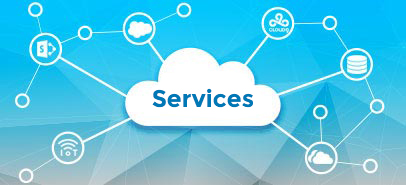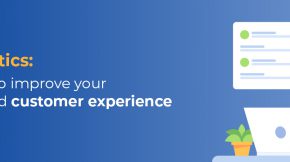How does business intelligence apply in healthcare?
Today data is considered a wonderland of endless possibilities. Data gives businesses the power to understand the target demographic in ways that were not possible a few decades ago. When powered by business intelligence solutions, this data can completely steer businesses toward growth.
One such industry that now gathers a lot of data is healthcare. What’s interesting about healthcare is that it generates massive data related to variables such as patients, staff, labs, appointments, electronic health records, X-rays and scans, diagnosis statistics, pharmacy, memberships, and so on. However, not all of this data has helped healthcare organizations to really use it for better healthcare delivery.
BI Comes to Rescue
If hospitals and healthcare enterprises had to classify this data, it would have three categories: financial, operational, and clinical. Healthcare enterprises need business intelligence to organize this data for achieving goals such as better healthcare delivery, outcomes management, improvement of clinical process and performance, reduction of cost and resources, and so on. That is why, the healthcare sector needs powerful analytical tools to organize and sort large amounts of patient data. Data visualization and modeling are vital to choosing the most appropriate healthcare analytics tool for emergencies.
Importance of Business Intelligence in The Healthcare Industry
BI manages medical data of all kinds in the healthcare industry. It allows various healthcare institutions to organize, sort, and analyze large amounts of data in the simplest way. The data obtained allow industries to improve their operations, ensuring optimum efficiency within limited costs. The various digital methods allow the healthcare sector to track results and make business decisions based on the filtered data.
BI performs various roles like uploading information in data storage, displaying the processed data in the form of reports, and using SQL Server and Oracle to connect data sources to the BI system.
Types of Business Analytics in Healthcare
Healthcare industries use business analytics to analyze the condition of healthcare institutions and develop appropriate business strategies to improve the present situation. The four significant business analytics are listed below-
- Descriptive- Its main objective is to determine the changes in the medical practice over a certain period. It also examines events that have already taken place.
- Diagnostic- Its main objective is to identify the relationship between different situations.
- Forecast- Its main objective is to predict future changes in trends and further developments. It also examines and explores historical facts and studies assumptions that can be used to answer questions about the future. A typical example is forecasting a virus’s spread by studying previous years’ data. Predictive analytics has made significant progress in the healthcare sector over the years.
- Prescriptive- Its main objective is to build an action plan based on the results from the other three types, the descriptive, diagnostic, and forecast. These assess a patient’s pre-existing conditions and determine the risk of developing certain circumstances. So it provides the capability to healthcare sectors to act or mitigate an unexpected circumstance. It is the future of healthcare and has unlimited scope and depth as there is rapid technological advancement.
Business Intelligence Applications in The Healthcare Industry
1. Patient care and satisfaction
Medical services operating on digital technology help in improving healthcare operations. BI keeps track of all the patient data that allows doctors to access entire patient data through simple software. It helps save a lot of time, energy, and effort for doctors as they get a better opportunity to serve the patient well. Likewise, the patients are also satisfied when given adequate attention and aid.
2. Patient personalization
With the help of BI tools, the patient history is obtained without much hassle. Thus, patient data has become more accessible with powerful BI applications and software.
3. Better costs allocation
Predictive modeling and visualization help get insights to address various risks and obtain solutions for important healthcare issues. In addition, it predicts trends in the spread of viruses and allows individuals to prepare for unexpected outbreaks.
4. Managing insurance claims
Powerful analytical tools help reduce reaction times against claims. It also allows insurance agencies to screen cases and safeguard themselves from fraud. Popular BI tools used in the healthcare industry are Domo and Sisense software. Domo is a cloud-based software that offers access to essential information through interactive dashboards. Sisense is a BI software that enables firms to collect information from diverse sources and club them into a centralized database.
What benefits does BI have for healthcare?
1. Improving care and lowering costs
When healthcare professionals get easy access to patient data, they can create various categories and reports based on the patient’s demographic. But this happens only through business intelligence software. This combination helps get accurate diagnosis and prognosis, leading to better resource management and improved patient care. Through BI software, hospitals and large healthcare organizations can keep a logical track of resources, therefore reducing wastage and cost. For example, Jefferson Medical Center applied BI software to measure employee productivity since it was directly related to patient care. In addition, the hospital was receiving 48,000 patients in ER, with a major portion being low-income patients, and was constantly trying to invest in new healthcare technology and improve its services. When they applied BI software, the system could easily pull data from its patient accounting software, payroll software, etc. The hospital was able to compare its own internal metrics with national averages since the software also integrated with third-party sources like US benchmarking data.
2. Improved patient safety and reduction of medical errors
Patient safety is directly related to a healthcare organization’s ability to make the right decisions at the right time. And this cannot happen without organizing, understanding, and analyzing patient data. Business intelligence software enables patients’ correct treatment procedures, ensuring their safety since data back each medical decision. It also ensures the elimination of repeat tests that helps in achieving patient satisfaction. Similarly, when clinical processes are streamlined with the help of correct data management, the chances of medical errors are reduced. Patient satisfaction has increased exponentially through detailed and comprehensive data.
3. Avoiding waste, better margins
The whole point of a business intelligence solution is to analyze and predict the various areas where resources are required and how they are allocated. The logic behind such software is to apply the right resources at the right time. This helps in eliminating wastage. At the same time, costs incurred for treatment per diagnosis, pharmaceuticals, and lab equipment can be reduced to a great extent. This helps healthcare organizations improve margins since they can more confidently cater to a larger patient base with the correct allocation of resources.
Business intelligence delivers analysis from multiple sources at once. As a result, healthcare organizations can see clearly which are the most efficiently running practices and how they are being measured. BI helps organizations identify anomalies and risk factors for better business decisions. Similarly, reports can be generated for patient data such as clinical outcomes, waiting time, complaints, services delivered, patient functionality, etc. This is valuable information for any forward-thinking healthcare organization wishing to stand out among millennial customers.
In addition, it allows the administration to track Key Performance Indicators (KPIs) that allow healthcare industries to track their performance based on regular examinations and surveys.
4. Better financial planning and improved decision-making
BI helps to track key performance indicators over a certain period. The various clinical, economic, and operational indicators help optimize costs, allocate funds between departments, and invoicing. As the entire system is centralized, tasks like billing and costing are free from errors. It also stores internal and external data in a single place and provides easy access to other sectors. Thus, it also helps improve the treatment quality and overall patient care. Collaboration in case of critical emergencies does not get delayed as resources and equipment are available through the centralized business intelligence network. Through the centralized system, complicated system operations are accessible without much delay.
5. Better process implementation
With the help of BI, healthcare industries improve patient results by giving appropriate treatments at the right time. BI tools help make better decisions and ensure that patients’ treatments can be done more precisely. It also benefits healthcare providers as it helps schedule follow-ups, automate routine care and visualize progress in health through graphical tools.
To Sum Up
Business Intelligence in the healthcare sector is a mega reform that is transforming the situation of the present-day healthcare system. Data analytics is used to predict trends in the spread of illness, allowing doctors to be completely equipped for any possible risks. BI optimizes health care and revenue streams and recognizes the needs of the medical staff. It also makes use of real-time data to ensure a smooth patient-doctor relationship. Thus, with the help of healthcare analytics and a modern dashboard, BI constantly monitors the industry’s performance and saves lives.
Beyond Key has been delivering healthcare business intelligence consulting services for over a decade. We have the right technical expertise that blends perfectly well with healthcare as a domain. Our consulting services help organizations apply the BI software most conveniently and logically as possible. Want to get started? Request a demo.














